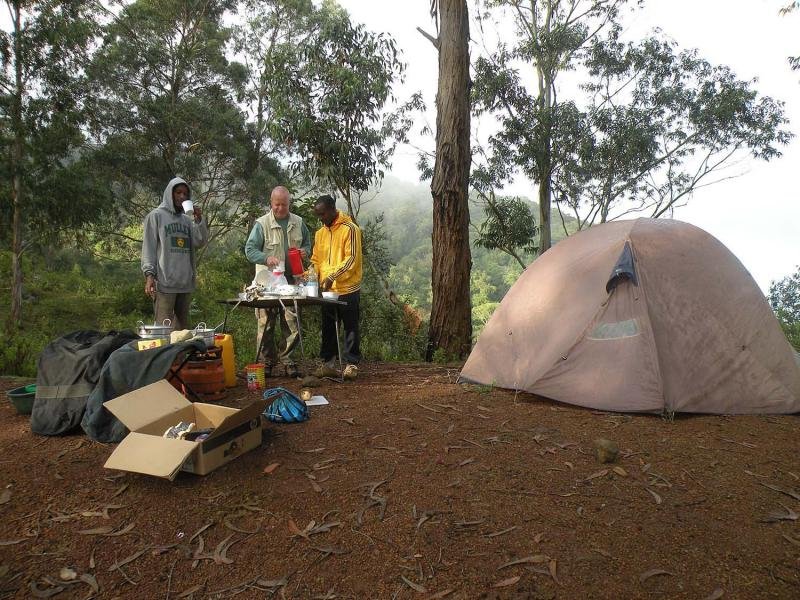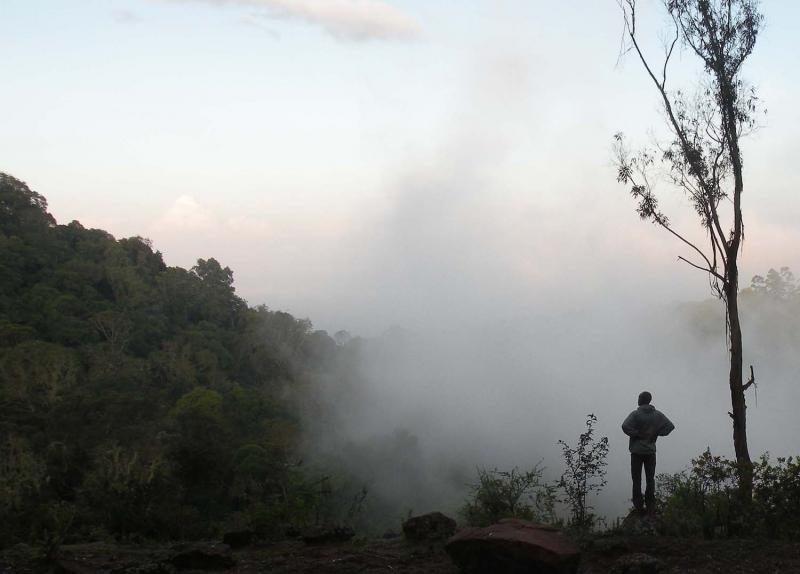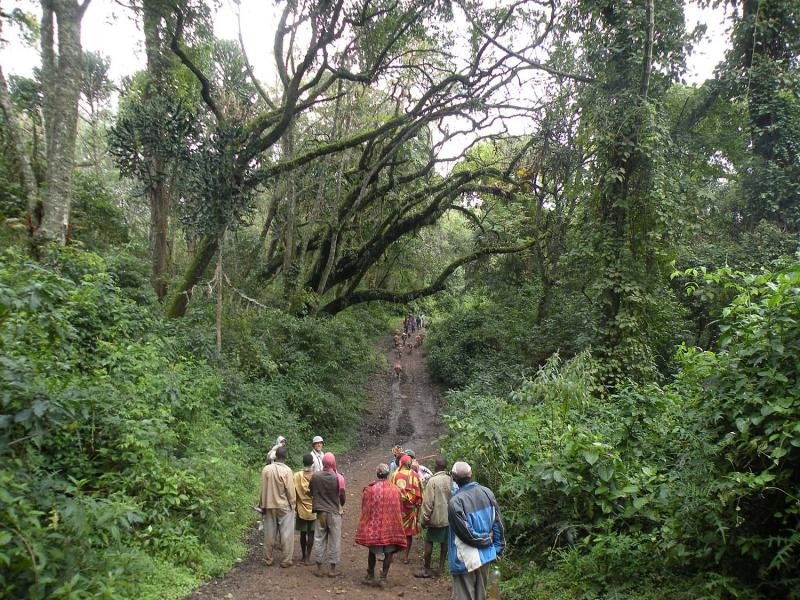

EthioGuzo Tour and Travel plc.
P.O. Box 846, Code 1250
Addis Ababa
Ethiopia
ph: +251 (0) 116 299863
alt: +251 (0) 938 482325
info
Shokolo Ecolodge
Shokolo Ecolodge is located about 55 km south of Arbaminch on the mountain of Gardula at approximately 2500 m altitude. A rough dirt road joins Gidole town with the southwest edge of the plantation and natural forests on Gardula Mountain and continues to the village of Busa located about 5 km from Gidole town. The location of the ecolodge is in the forest on a ridge through which this road cuts.

The ecolodge overlooks natural forest and the Omo Valley to the southwest, the Gugi Mountains to the north and the Rift Valley Lake Chamo to the east. The location of the ecolodge is known as Shokolo in Dirashe meaning “valley“ which is the name appropriately designated for the lodge.

In the 1980's during the Mengistu regime, the Ministry of Agriculture planted a large plantation of Eucalyptus and Cuppressus trees over the top of the mountain which have since grown into large trees forming a plantation forest of significance today. There is a remnant protected natural forest on the northeast slope of the mountain which provides habitat to a large variety of birds and some mammals such as colobus, vervet, olive baboons, grey duiker and bushbuck.

Other natural forests worth mentioning exist approximately 15 km south of the designated ecolodge site near to Dobase and Mashole but are not visible from the Ecolodge site.
Also present is a natural hotsprings in the valley, 36 km north of the site.

Gidole, the central town in the region of Dirashe is surrounded by five ethnic groups; Dirashe, Mosiye, Dobase, Kussume, and Harsse, the dominant group being Dirashe. The inhabitants of Gidole town once inhabited the top of Mount Gardula (~ 2500 m). The Italians occupied and used this town as their southern base in Ethiopia for more than a decade up until WWII. Ruins of their buildings can be found on the mountain including caves excavated for bomb shelters during WWII and office buildings still intact and being used by the Dirashe regional government in Gidole town. During the reign of Emperor Haile Selassie the people of Gardula were resettled from the top of the mountain to present day Gidole town.
Potential tourism products for this area include the following:
Nature hikes
There are a number of trails created by the Ministry of Agriculture and by local inhabitants that cut through the plantation forest, natural forest and along the ridges of the mountain allowing for stunning views of the valleys, Lake Chamo and the surrounding plains. At certain points on a clear day it is possible to see 360 degrees in all directions; Konso to the south, Jinka to the West, Arbaminch to the north and Lake Chamo to the east.
The forests harbor a significant biodiversity that if actively protected would thrive and could easily be observed by visitors to the ecolodge and hikers along the trails. The forest canopy creates a pleasant cool environment for walking. It is important that the vegetation cover going to and around the natural hotsprings in the valley north of the site needs to be protected so that the vegetation rejuvenates into a haven of lush paradise attracting visitors with over-story foliage, birds and wildlife.
Traditional agriculture and coffee culture tours
Coffee has been cultivated and developed in Dirashe since at least the beginning of the 1900’s. Also present is a wide variety of agricultural crops found in the local traditional home gardens. These home gardens together with the coffee and traditional compounds have great potential as forming ecotourism products.
Visitors would be fascinated taking a guided tour through a village where this sort of traditional landscaping has been well designed. The coffee plants and associated indigenous canopy trees planted along with the other local crops in attractive arrangements such as along trails and around traditional compounds will provide shade for humans and will attract abundant wildlife such as small mammals and birds.
Cultural tours
Though the Dirashe cultural dress is no longer commonly worn in and around Gidole Town quite a number of rural lowland Dirashe still maintain the cultural dress and hairstyles. These frequent the Tuesday, Thursday and Saturday markets in Gidole town making for a colorful and culturally interesting spectacle. Other interesting cultural components are the traditional houses and their compounds where one can observe pottery making, traditional handicrafts and arts, preparation of local food and drinks, and sometimes cultural ceremonies and dance. Guided tours to the most interesting of these can be developed.
EthioGuzo Tour and Travel plc.
P.O. Box 846, Code 1250
Addis Ababa
Ethiopia
ph: +251 (0) 116 299863
alt: +251 (0) 938 482325
info
